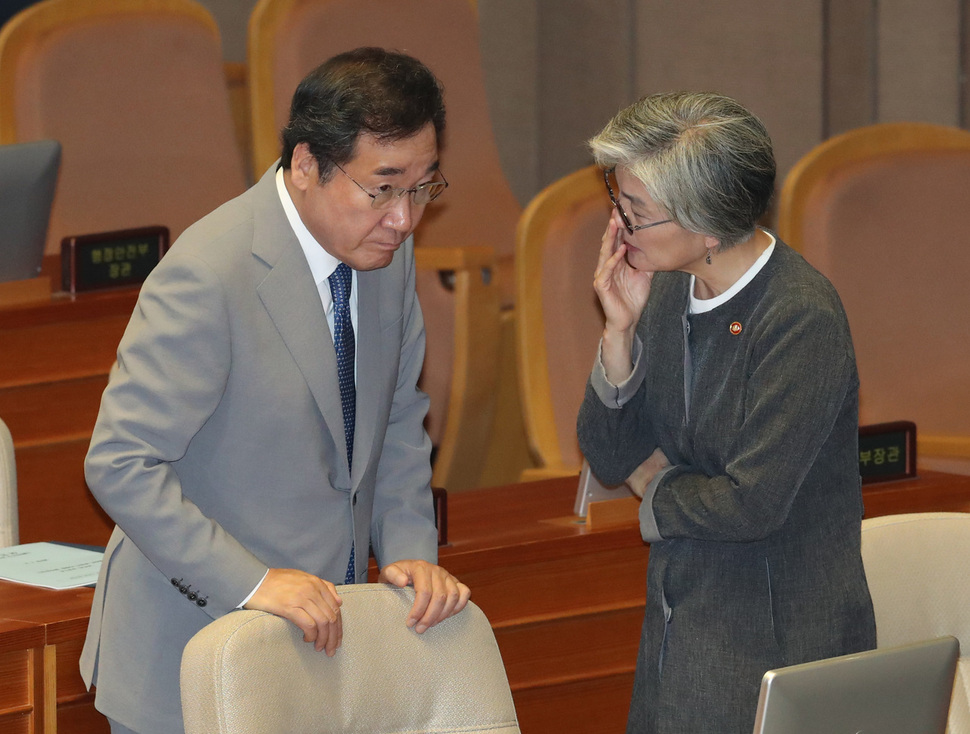 |
|
South Korean Prime Minister Lee Nak-yeon (left) and Foreign Minister Kang Kyung-wha during a plenary session of the South Korean National Assembly on July 3. (Kang Chang-kwang, staff photographer)
|
Foreign ministry to file complaint with WTO
On July 3, South Korean Foreign Minister Kang Kyung-wha criticized the Japanese government’s decision to tighten standards for approving exports of three kinds of parts and materials used in manufacturing semiconductors and displays, measures that Japan announced on July 1 in retaliation for a South Korean Supreme Court ruling awarding damages to the victims of forced labor during the Japanese colonial occupation. “These retaliatory measures run contrary to reason and common sense. We’re preparing to lodge a complaint [with the World Trade Organization],” Kang said. Kang addressed the Japanese government’s retaliatory export controls, which take effect on July 4, while attending a plenary session of the South Korean National Assembly’s Foreign Affairs and Unification Committee on Wednesday. “It’s regrettable that Japan has taken arbitrary measures that go against both the WTO agreement and the G20 declaration,” she said. Before these measures were announced by Japan’s Ministry of Economy, Trade, and Industry on July 1, Kang explained, South Korea’s Foreign Ministry had been in touch with Japan’s Foreign Ministry, but neither ministry had received advance notification of the measures. “It’s quite regrettable that these measures were imposed without any kind of advance notification, and we’ve protested that strongly,” Kang added. Kang acknowledged that “Japan hasn’t exercised the slightest degree of courtesy to us while proceeding through several steps of conflict resolution.” At the same time, she said, “The Foreign Ministry has to prevent the situation from deteriorating. We need to devise countermeasures that fit the severity of the retaliatory measures.” Kang also addressed the economic harm that South Korean companies are likely to suffer. “We will communicate closely with the industry and take every measure to minimize corporate damage. We’re also planning to respond in accordance with domestic and international law, which could include lodging a complaint with the WTO,” she said. Kang also stated that South Korea would make a joint response with other countries that will suffer indirectly from Japan’s measures. In addition, Kang rejected an argument supported by Kim Mu-seong, a lawmaker with the Liberty Korea Party, who suggested that the issue of paying damages for forced labor had been resolved by a claims agreement that South Korea and Japan had concluded in 1965. “The claims agreement dealt with the right to make claims for property and civil matters. The judiciary’s decision has to do with psychological damage,” Kang said. When lawmakers suggested that the South Korean government’s response had been problematic, Kang said, “The Ministry of Trade, Industry, and Energy deliberated with the industry to devise countermeasures for a number of scenarios. I don’t think the government was lax in its response.” By Kim Ji-eun and Noh Ji-won, staff reporters Please direct comments or questions to [english@hani.co.kr]






